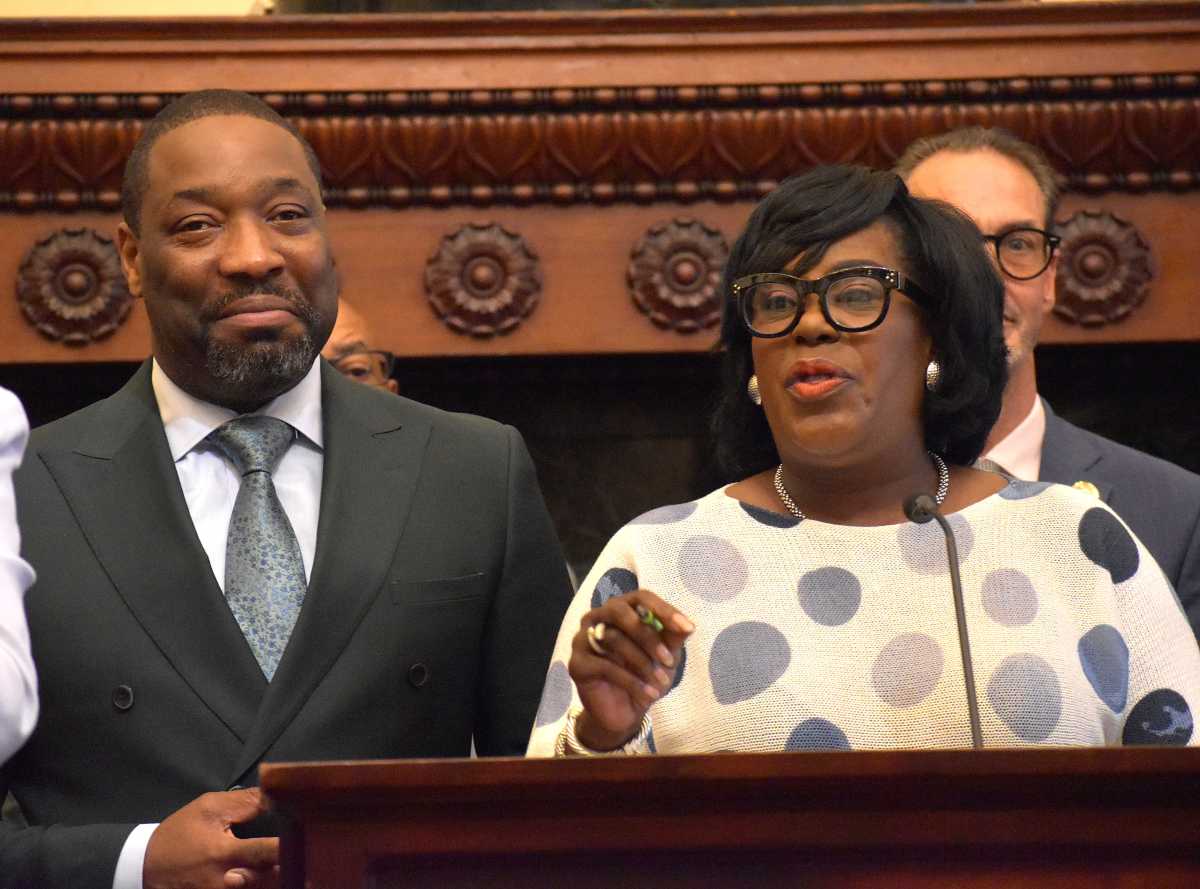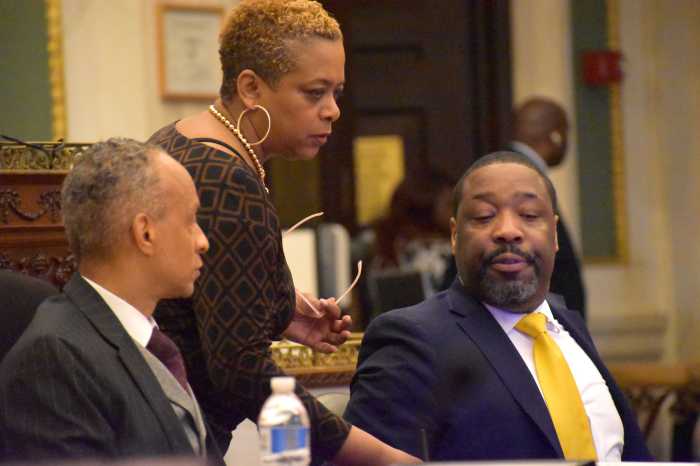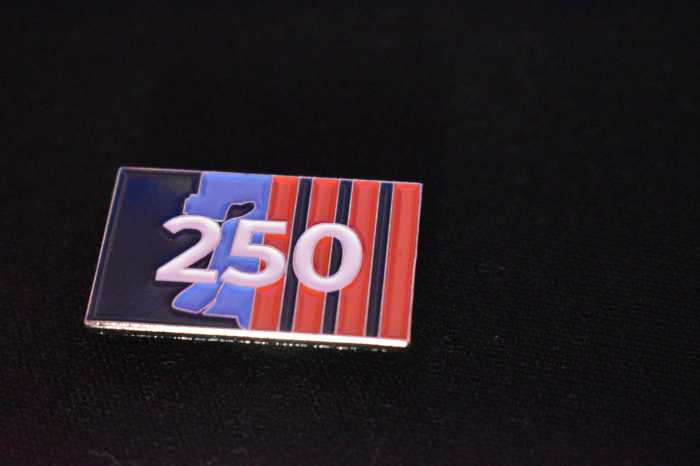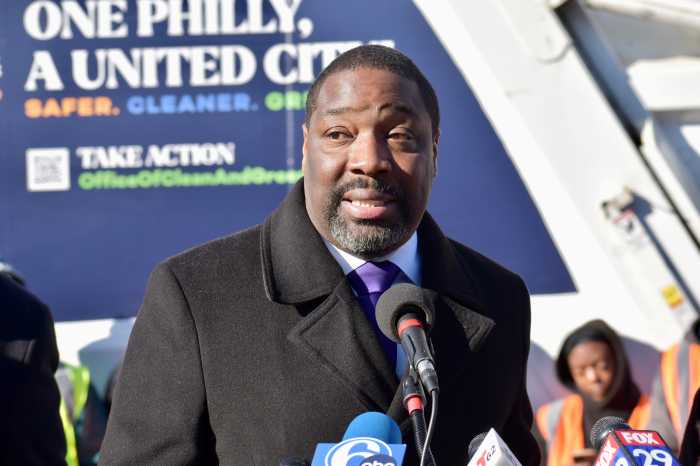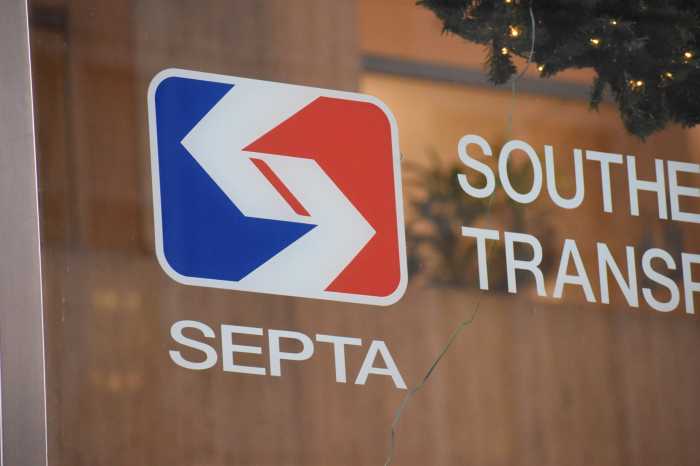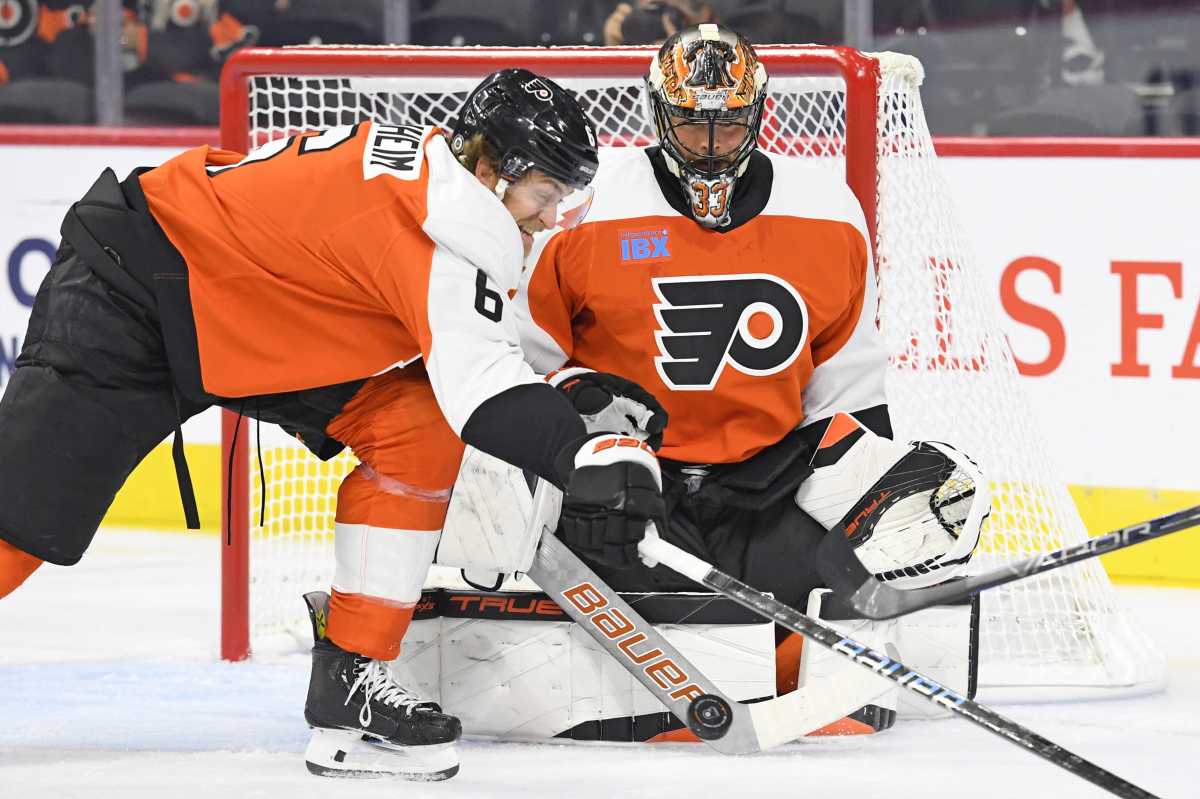Mayor Cherelle Parker celebrated the passage of her second city budget Thursday afternoon, after lawmakers approved a spending-and-tax plan along with a measure to borrow $800 million to fund her housing initiative.
The budget – totaling about $13.4 billion across operating and capital expenses – invests in many of the same priorities she has pursued since taking office in January 2024, including block cleaning programs, extended-day/extended-year schooling and establishing a “wellness” system to address Kensington’s opioid crisis.
Meanwhile, her Housing Opportunities Made Easy, or H.O.M.E., initiative combines the bond proceeds with $1 billion in city-owned lots with the goal of creating or preserving 30,000 units of affordable housing over four years.
Over the next five years, City Hall is on track to devote nearly $800 million to SEPTA, which is preparing for painful cuts to cover its fiscal deficit if state lawmakers do not allocate more money to public transit this budget cycle.
“We have to set the record straight,” Parker said. “Philadelphia’s homework is done. We are doing our part to support mass transit.”
Parker and Council signed off on business tax cuts and codified a 13-year plan to dramatically slash rates, a move that angered progressive activists and is not swift enough for others.
“We got beat up because there were people who were angry who said, ‘You didn’t cut enough,’” the mayor said at a City Hall news conference. “I want to say to the business community, we did the best we could with what we had.”
Administration officials say the budget is the first in more than 15 years to reduce both portions of the Business Income and Receipts Tax and the resident and non-resident wage tax. In the coming year, it will cost the city $210 million – characterized by Parker and Council President Kenyatta Johnson as a “tax investment.”
Lawmakers did not alter Parker’s tax proposals, though they did add an extra $17 million over the next two years to aid businesses impacted by the end of the BIRT exemption. The benefit excluded an enterprise’s first $100,000 in revenue; however, the administration scrapped it because of legal liability.
Council also fought for $26 million in additional capital expenditures; $3.5 million for community development corporation grants; and $2 million for smaller organizations hosting events coinciding with the 250th anniversary of the Declaration of Independence in 2026, according to representatives from Johnson’s office.
Johnson compared his relatively harmonious relationship with Parker to the tandem of Mayor Ed Rendell and Council President John Street in the 1990s.
“You have folks who want to see us fight,” he added. “When you talk about people (are) not used to seeing the second floor and the fourth floor working in partnership,” referring to their office locations within City Hall.
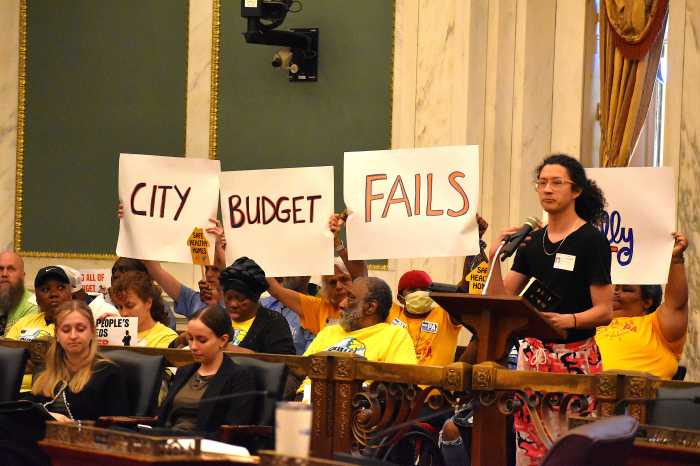
Earlier Thursday, the H.O.M.E. legislation was approved unanimously, and most of the budget bills passed in a 15-1 vote, with the lone dissent coming from Councilmember Kendra Brooks. Her fellow Working Families Party member, Nicolas O’Rourke, was absent on family leave.
While the votes were one-sided, more opposition was present in the gallery, with some members of the public breaking out in “Tax the Rich” chants when the BIRT cuts were adopted.
“The codification of steep tax cuts over 13 years will cut our city funding by billions of dollars over the next decade,” said Kimmy Cook, an organizer with the Alliance for a Just Philadelphia, in a statement.
“City leadership has all but shrugged off federal threats to gut Medicaid and education, and hasn’t taken into consideration the uncertainty of the moment we are in,” Cook added.



